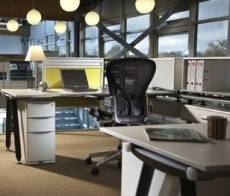July 9, 2014
Mace to oversee Old Admiralty refurbishment for DfE occupation
 As a direct result of the Cabinet Office’s programme to consolidate and modernise the government estate, the Grade II listed Old Admiralty Building is to be designed and refurbished for the Department for Education (DfE). Mace is to oversee the project, which will see the modernisation of 18,000 sq. metres of office space to provide space for over 1,600 staff, who are currently working in leasehold accommodation. Old Admiralty Building (OAB) is currently occupied by staff from the Foreign & Commonwealth Office, who as part of the estate rationalisation strategy, will be consolidated into the Foreign Office’s King Charles Street Office in 2015. Refurbishment work is targeted to commence at the OAB late in 2015, following a design procurement process, including liaison with Westminster City Council planning and English Heritage, with the project due for completion in 2017. More →
As a direct result of the Cabinet Office’s programme to consolidate and modernise the government estate, the Grade II listed Old Admiralty Building is to be designed and refurbished for the Department for Education (DfE). Mace is to oversee the project, which will see the modernisation of 18,000 sq. metres of office space to provide space for over 1,600 staff, who are currently working in leasehold accommodation. Old Admiralty Building (OAB) is currently occupied by staff from the Foreign & Commonwealth Office, who as part of the estate rationalisation strategy, will be consolidated into the Foreign Office’s King Charles Street Office in 2015. Refurbishment work is targeted to commence at the OAB late in 2015, following a design procurement process, including liaison with Westminster City Council planning and English Heritage, with the project due for completion in 2017. More →




 The familiar sight of companies scrabbling to define a standard global technology format on their own terms is evident with the announcement of yet another consortium intent on becoming the de facto standard for the Internet of Things (IoT). The
The familiar sight of companies scrabbling to define a standard global technology format on their own terms is evident with the announcement of yet another consortium intent on becoming the de facto standard for the Internet of Things (IoT). The 


















June 27, 2014
Government must solve problem of London’s wasted commercial property
by Paul Statham • Comment, Facilities management, Property
More →